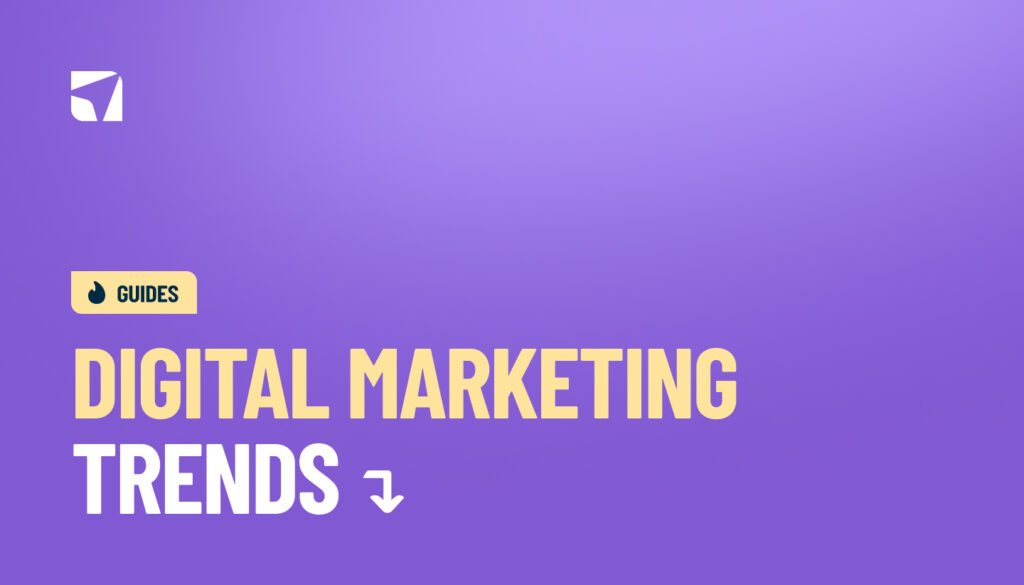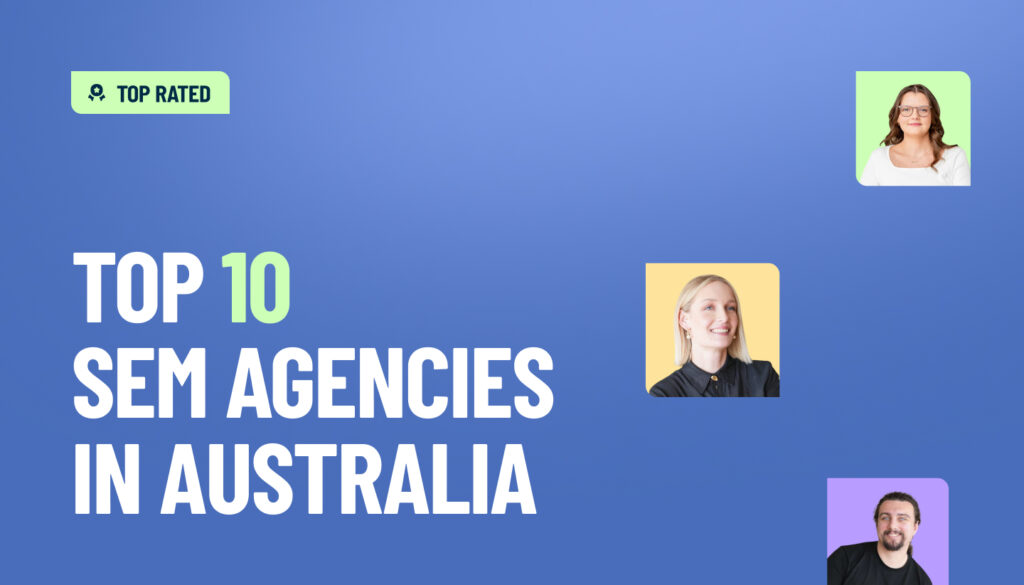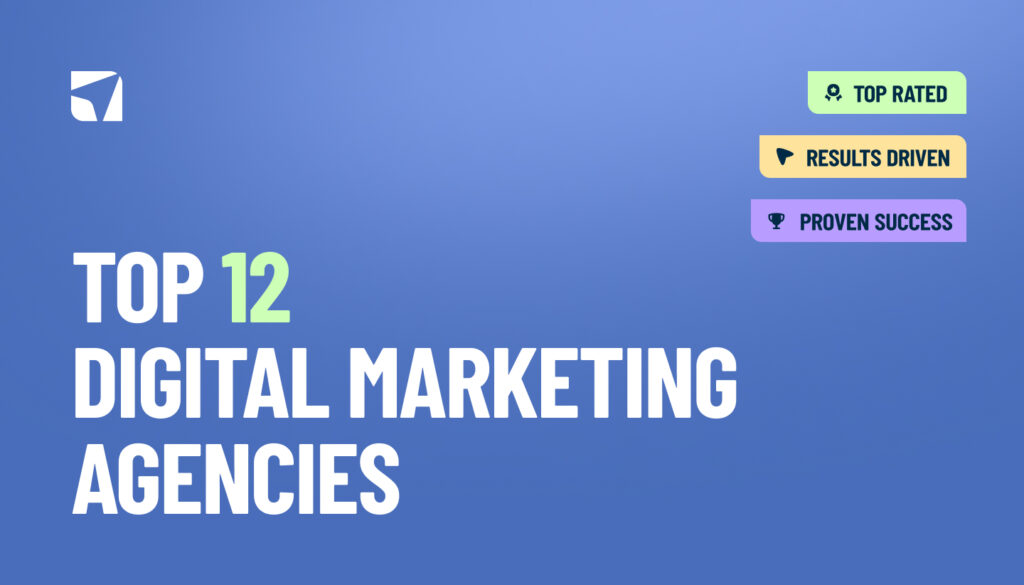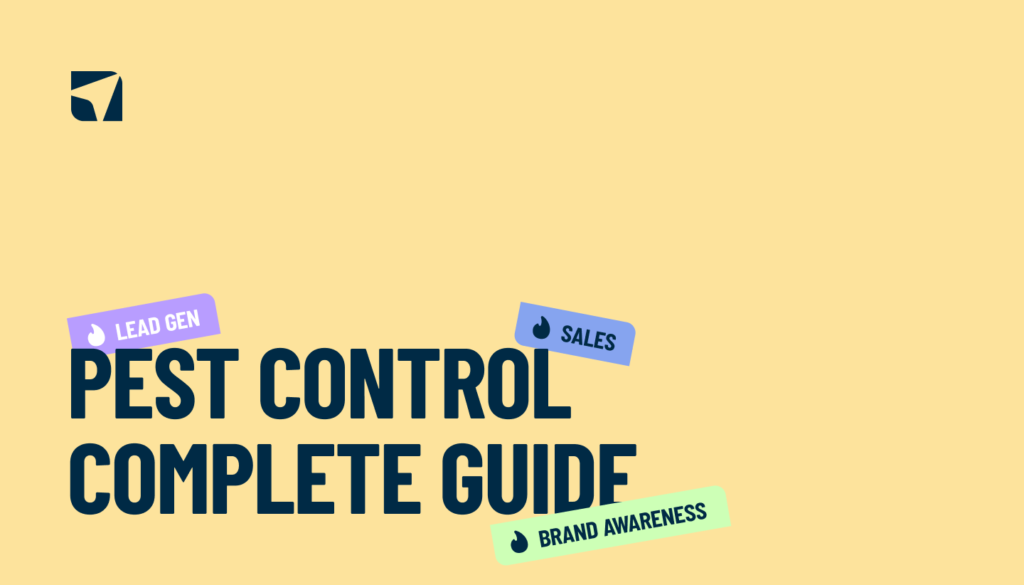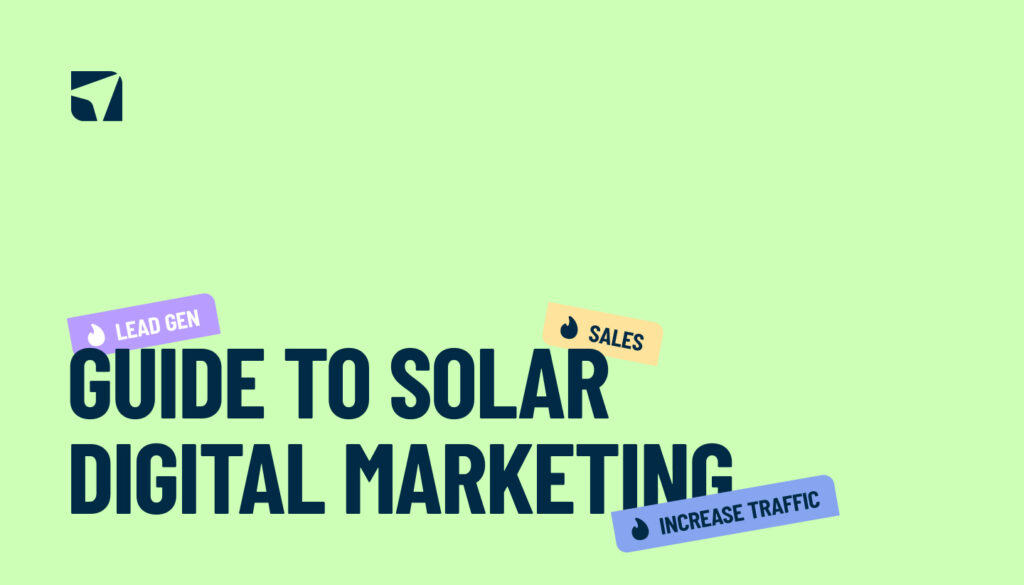We have seen some massive trends come across in the digital marketing space in 2025.
These trends range from platforms to content style to skillsets and everything in between.
Here are the top 5 most influential trends we have identified:
1. When it comes to Social Media, platforms such as X, Threads and Blue Sky are on the rise, as well as employee-generated content (EGC) and customer-based marketing.
2. The use of AI is growing, meaning businesses must watch out for AI fatigue. A considerable amount of growth has been seen in AI agents, AI in e-commerce and the use of AI in paid ad campaigns.
3. Required Digital Marketing Skills are changing, with soft skills becoming key. The importance of digital marketers being fluent in AI is growing, as well as their general understanding of the operations and finances of a business.
4. Different forms of Search Marketing are becoming more popular, including social search and voice search. Generative Engine Optimisation is also becoming more crucial as the way that different search engines are changing.
5. Different Content Marketing strategies are also being discovered and introduced. Updating old content to improve its performance, as well as producing and publishing Human + AI Content.
These current trend insights could help shape your marketing strategy and improve the success of your business.
Social Media Marketing Trends
Social media marketing remains a powerful tool for businesses, with different platforms allowing for different types of content to be showcased.
In 2025, we have seen businesses using different marketing strategies across social media that we haven’t observed before.
X, Threads and BlueSky: Platform shifts in 2025
X (formerly known as Twitter) still stands as a leading platform with almost 600 million active monthly users at the start of 2025, according to Statista.
However, Meta’s Threads is growing rapidly, with 320 million monthly users, as stated by TechCrunch.
Whilst not as big, BlueSky is another up-and-coming platform attracting 142.4 million website visitors in April 2025.
Each of these platforms gives marketers unique advantages and offers users a unique experience.
Check out some of their key benefits:

"Bluesky has the edge over Threads to be the new Twitter as people leave X,"
said Gordon MacMillan, former head of content strategy at Twitter.
Whilst the content shared on X, Threads and BlueSky doesn’t typically perform as well as it might on other platforms, generating a significantly lower engagement rate, each social media network offers a different experience to users compared to the other larger social media platforms.
Wendy’s is a great example of a brand that leverages the benefits of X extremely effectively, generating high engagement on each piece of content.

Expert tip: If you’re considering using these platforms to your advantage and posting similar content across all three of them, make sure to format/adapt the content to suit the platform. This will ensure it performs to its maximum potential.
Employee-Generated Content (EGC)
Employee-generated content has become one of the most effective social media marketing trends of 2025.
Brands can gain trust and credibility by having their employees establish relationships with their audience through social media content.
Sprout Social suggests that 57% of consumers are willing to increase their spending with a brand they feel connected to. 76% say they would choose to buy from a brand they trust over a competitor.
"Craftsmanship, culture, and community matter more. People don't just want to see the final product; they want to know who made it, how it's made, and why it matters. That's a story best told by the people behind the scenes,"
said Thomas Walters, co-founder of influencer marketing agency Billion Dollar Boy
Expert tip: If you’d love to create UGC for your business but feel like your staff just don’t have the time for it, try implementing incentives to encourage staff members to get behind the camera. Even if it’s just one short TikTok or reel a week!
Customers over Influencers
Collaborating with customers is where it’s at!
Whilst influencer marketing is still quite popular amongst brands and an effective way of generating interest, many businesses are now switching to User Generated Content (UGC).
Hootsuite states that 86% of consumers are more inclined to purchase from a brand that shares UGC content.
An example of an effective UGC campaign is the Coca-Cola “Share a Coke” campaign, in which customers were encouraged to share images on social media or via the Coca-Cola app with their personalised bottles.
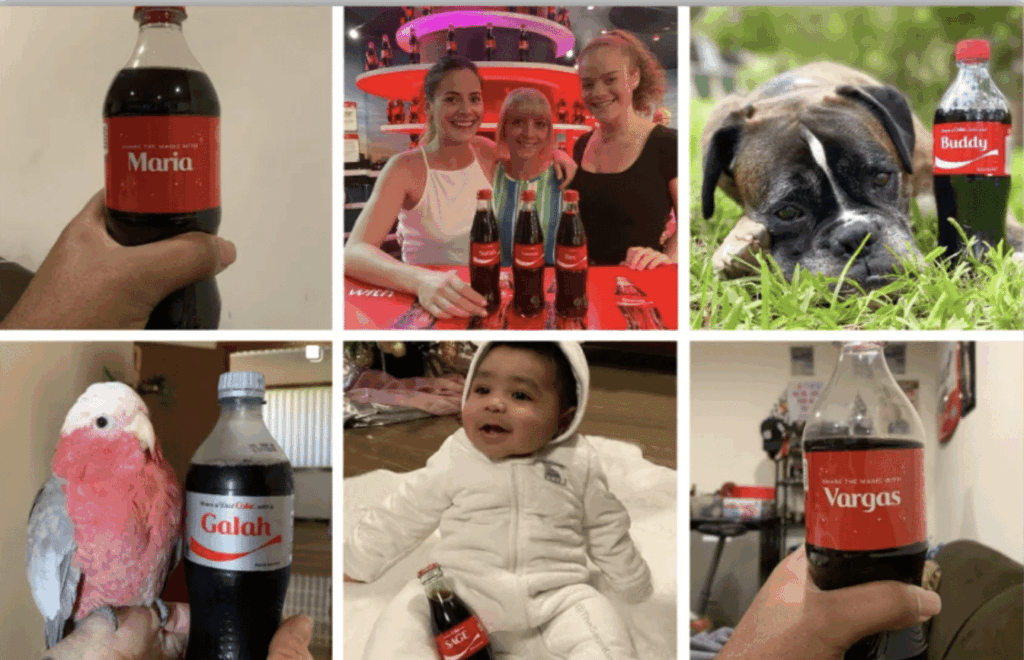
“User-generated content is the most authentic form of marketing. Consumers are more likely to trust a brand that shares UGC, as it reflects real experiences and builds genuine connections.” – Hootsuite
Expert tip: Make sure to showcase your UGC content in the right places. This might be on product pages, Instagram stories, email marketing campaigns or paid Meta Advertisements.
"Marketing trends are not just passing fads; they are the result of changing consumer behaviours and technological advancements."
Benjamin Paine, Managing Director at Digital Nomads HQ
The Rise of AI in Digital Marketing
It’s no secret that AI is becoming more and more prominent within the digital marketing world.
Research conducted by SurveyMonkey states that 32% of marketing organisations have fully implemented, whilst 43% of marketing organisations report experimenting with AI platforms.
AI Fatigue
The implementation of AI can put businesses at risk of experiencing “AI fatigue”.
AI fatigue occurs when bringing in AI tools ends up creating more work for an organisation instead of making things easier.
Some companies avoid this problem by targeting specific uses rather than broad applications.
AI Agents
AI agents are now able to handle complex campaign workflows on their own.
These systems analyse performance data, adjust targeting, and move budgets around without the help of humans.
CoSchedule reveals that marketing teams save more than 5+ hours each week by using Artificial Intelligence.
AI in ecommerce
AI can provide consumers with an extremely personalised service via e-commerce platforms.
Modern AI studies browsing patterns and purchase history to create individual-specific experiences.
AI chatbots have grown more and more realistic. Many consumers can’t tell the difference between AI and human customer service agents.
Expert tip: Use AI to personalise consumers’ entire shopping journeys. Tools can be used to personalise emails and marketing material sent out to customers. This personalised experience can then continue onto the homepage of a website, pushing recommended products to certain individuals based on their shopping habits.
AI in Paid Ad Campaigns
Deloitte discovered that marketing teams using AI-powered ad platforms see a 22% improvement in ROI across campaigns.
Machine learning has changed ad optimisation beyond basic A/B testing.
Smart algorithms predict how audiences will respond, estimate conversion chances, and adjust bidding strategies automatically.
Many leading brands now use generative AI to create multiple ad versions at once.
Digital Marketing Skills
Digital marketing success in 2025 depends more on a mix of people skills and tech knowledge than pure technical expertise.
Soft Skills
The human touch has become marketing’s biggest advantage as automation grows.
Emotional intelligence stands at the top of the must-have skills that help marketers handle client relationships better. Digital marketers need curiosity to stay relevant in this fast-changing reality.
Marketing still comes down to getting people to buy products, which makes persuasion vital. Clear and personable written and verbal communication helps build strong relationships and share ideas effectively.
Adaptability has become a key skill, as successful marketers embrace change to stay relevant.
“In marketing’s dynamic landscape, emotional intelligence (EI) is a critical driver of success. EI goes beyond mere transactional relationships to create genuine, lasting connections with audiences,” said Media Psychologist and Marketing Executive, Leslie Poston
AI Fluency
While many marketers use AI tools daily, only a handful would call it their strength. This gap between simple adoption and strategic use shows where teams need to grow.
AI fluency means more than just using tools occasionally; it’s about making use of information for better decisions.
Teams that write good prompts and improve AI outputs will lead the pack. Companies that are regularly trying to upskill their teams in AI fluency will naturally see better performance metrics.
Several well-known marketing agencies, such as Big Red Communications Group in Melbourne and Growth Gurus in Surry Hills, are now specifically hiring for “Prompt Engineers” to develop AI prompts for businesses, as well as customised AI bots.
Expert tip: Always encourage your team to keep learning! Training and upskilling your team in AI practices, such as prompt engineering and evaluating outputs, is a real investment.
The Importance of Business Knowledge
Marketers must have a solid understanding of business and finance.
This matters because these departments will usually be the ones to approve marketing expenses in most companies.
Marketers who understand finance’s language become extremely valuable assets to the team, especially when marketing needs support at the executive level.
Marketing decisions must be data-backed, and financial literacy ends up helping marketers allocate resources better and prove their strategies’ worth through ROI calculations.
Search Marketing
Search marketing continues to change as people’s searching methods evolve.
Check out some of these newest search trends.
Social Search
Social platforms have become the main discovery engines.
To optimise for this search trend, conversational queries and question formats must be focused on, eg, who, what, where, why, when.
Visual content and platform-specific strategies also help brands stand out in social search.
Luke O’Leary says, “People are behaving differently when they search any type of query on a search engine, but they’re also utilising more platforms in their searches. Social search has become a big thing, and people are utilising TikTok, Instagram, and YouTube for more of their searches.”
Voice Search
Voice search keeps growing with over 1 billion monthly searches according to Yaguara.co. Many voice shoppers use the feature to research products.
Voice assistant devices like Google and Alexa have played a large role in the growth of voice search, with many people finding it to be a more convenient way of gathering information.
Expert tip: Optimise your content for voice search! To do this, you must focus on organic-sounding questions, giving people the answers they are searching for. An example of this could be “What is the best toaster to buy?”. A great way to do this is through publishing blog posts!
Generative Engine Optimisation (GEO)
GEO brings a fundamental change to search strategy.
Unlike traditional SEO, it optimises content for AI-driven search engines like ChatGPT, Perplexity, and Google AI Overviews.
Gartner predicts a 25% drop in traditional search by 2026.
Brands and businesses must adapt now. GEO requires contextual accuracy, detailed responses, and authoritative content that AI algorithms are able to recognise and analyse.

Content Marketing
It’s no secret that content creation makes up a large part of the digital marketing space, being most businesses’ primary form of connection with their audience.
Here are some of the key content marketing trends that have emerged in 2025.
Improving the performance of old content
Old content updates deliver impressive ROI without much effort.
Neil Patel’s research reveals traffic can jump up to 106% after updating old posts.
Reworking content means fresh information, rich media elements, and filling content gaps. Orbit Media’s survey backs this up – marketers who update old content are 2.8 times more likely to see strong results.
“Updating old content is one of the most effective ways to boost your website’s performance. It’s less time-consuming than creating new content and can yield significant results,” said Neil Patel
Human + AI Content
AI efficiency combined with human creativity creates optimal content.
AI tools can produce content a lot faster than humans, yet consumers are usually able to detect AI-generated content and will typically interact less when they do.
Check out this episode of our Digital Nomads HQ podcast, where Ben & Annabelle discuss the risks of using AI to write content without adding some form of human touch.
Many marketers are now using this hybrid approach to get better results. The key is strategic collaboration between humans and AI.
Expert tip: Use AI to handle the heavy lifting – handling data analysis and drafts (the time-consuming part) while your team works to input emotional intelligence and creative viewpoints.
Check out our Podcast!
Have a listen to our podcast where Benjamin Paine (Managing Director) and Annabelle Cochrane (SEO Manager) of Digital Nomads HQ continue the discussion on digital marketing trends covering AI, content creation, and more!
